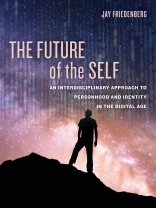We live in the digital age where our sense of self and identity has moved beyond the body to encompass hardware and software. Cyborgs, online representations in social media, avatars, and virtual reality extend our notion of what it means to be human. This book looks at the progression of self from the biological to the technological using a multidisciplinary approach. It examines the notion of personhood from philosophical, psychological, neuroscience, robotics, and artificial intelligence perspectives, showing how the interface between bodies, brains, and technology can give rise to new forms of human identity. Jay Friedenberg presents the content in an organized and easy-to-understand fashion to facilitate learning. A gifted researcher, author, and classroom teacher, he is one of the most influential voices in the field of artificial psychology.
Innehållsförteckning
List of Figures
List of Tables
Acknowledgments
1 Introduction
Primary Terms: Personhood, Self, and Identity
The Psychology of Personhood
Perspectives on Personhood
Non-Western Views of Self
A Few More Ideas on the Self
The Artificial Self
Book Overview
2 The Philosophy of Self
Historical Conceptions of Personhood and Self
Three Additional Philosophical Conceptions of the Self
Personal Identity
Knowledge of the Self
Free Will and Determinism
The Extended-Mind Thesis
3 The Psychology of Self
Varieties of Self: The Modern Approach
Psychological Theories of Self
Disorders of Self
4 Brain
The Neuroscience of Self
Is There a Specialized Brain System for Self?
One or Many Neural Selves?
Neural Models of the Self
Problems with the Neuroscientific Study of Self
Responses to Problems with the Neuroscientific Study of Self
5 Brain + Hardware
Cyborgs
Prosthetics
Neural Prosthetics (Brain-Machine Interfaces or Brain-Computer Interfaces)
Artificial Memories
Robotics
6 Brain + Software
Technology
Cyberpsychology
Varieties of Online Behavior
Video Games
7 Avatars
What Is an Avatar?
Avatar Typologies
Avatar Behavior in the Palace
Avatar Embodiment
Points of View
The Proteus Effect
Representing and Creating the Online Self
Avatars at Play
Avatars and Video Role-Playing Games
Avatars and Identity
Avatar Case Studies
The Future of Avatars
8 Virtual Worlds
Augmented Reality
Virtual Worlds
Virtual Spaces
A Brief History of Virtual Worlds
Presence and the Ultimate Display
A Chronology of VR Systems
Second Life
Avatars, Virtual Worlds, and the Digital Self
Benefits of VR and Virtual Worlds
Problems with VR and Virtual Worlds
The Future of the Virtual World
9 Software Selves
What Is Life?
Artificial Life
Life and Consciousness
Consciousness
Artificial Consciousness
Is Artificial Consciousness Possible? Some Ideas
Artificial Intelligence
Artificial Selves as Mindclones and Bemans
Digital Identity, Personhood, and Rights
Human Attitudes and Behaviors toward Artificial Selves
Digital Immortality
10 Conclusion
Changing the Self
The Future of the Self
The Far Future
Summary and Main Issues
References
Index
Om författaren
Jay Friedenberg is Professor of Psychology at Manhattan College. He has published several textbooks on topics in cognitive science, perception, and artificial intelligence and is a researcher in the field of empirical aesthetics.












